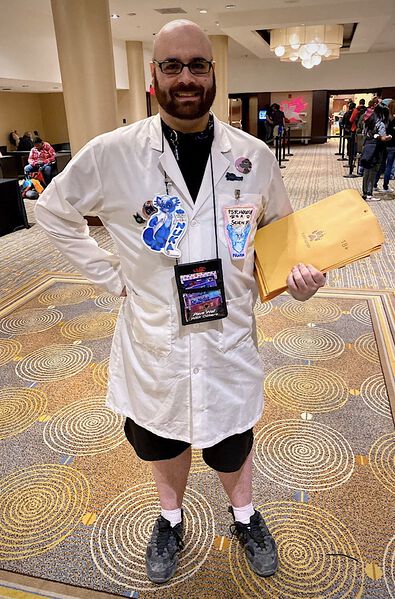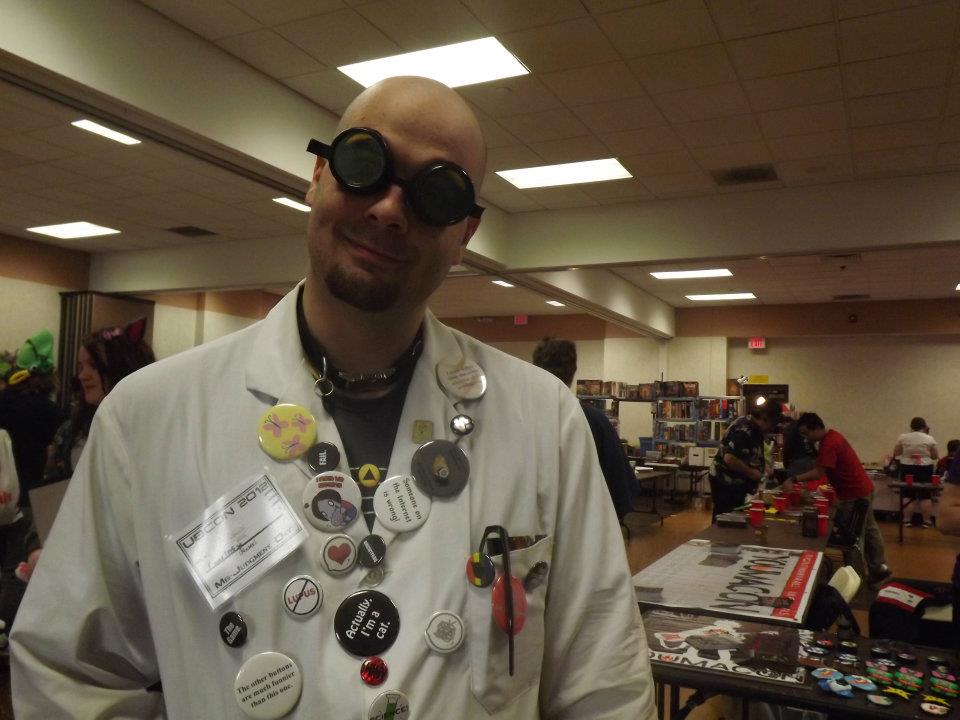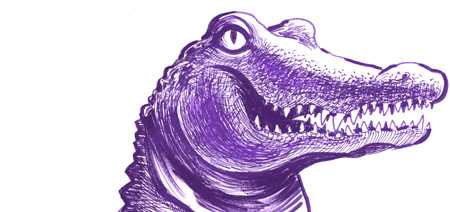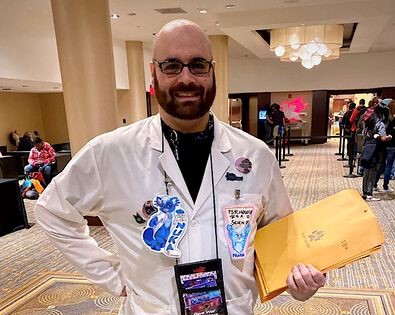For Pride Month, we’ll be featuring some notable members of the Bishop’s family from the LGBTQIA2+ community, individuals who have left their mark on a world that too often tries to silence them.

Despite not knowing much about Bishop’s before applying for a teaching position here, Dr. Courtney Plante (he/him) was immediately drawn to the beautiful campus and the university’s philosophy. Originally from Alberta, Plante loved the idea of teaching small classes, researching in his fields, and, most importantly, the freedom of being himself in an academic setting. “Being at a school where teaching is emphasized is exciting, and in class I get to be myself, a quirky, eccentric person,” he says.
He loves teaching introductory psychology courses and sees himself as “a cheerleader for psychology”, making the field come to life and fostering excitement in students. He also contributes to the campus experience by getting engaged with students outside of the classroom. “I love being on campus as much as possible, eating in the lunch hall with students, and popping my head into clubs (he goes to the Games Club weekly). The feeling of being on-campus keeps me young.”
A social psychologist, Plante earned his Ph.D. (Social Psychology) in 2015 from Waterloo and has since completed a Post-doctoral fellowship at Iowa State. He has recently been promoted to Associate Professor in the Psychology department at Bishop’s.
His research, and what he is perhaps best known for, focuses on furries (fans of media featuring anthropomorphized animals), anime fans, and bronies (adult fans of My Little Pony). A member of the furry and brony communities himself, Plante noticed early on in his career that, as soon as students heard about what he studies, they wanted to learn more about it.
You may have come across Plante in his furry outfit on his way to a lecture. “A couple of times I teach in my furry suit and take all the questions from students. The feedback is largely positive, Bishop’s students tend to be progressive and open-minded,” he says. Plante was an undergrad when a friend of his, also a furry, suggested that Plante was a furry and brought him to a meetup.
“Like a lot of furries it was always inside me, but I didn’t have a word for it. Most of us grow up watching furry media without realizing it, like Mickey Mouse or Bugs Bunny and other walking, talking animals. Some folks never grow out of it and bring it well into their twenties and thirties.”
To these individuals, Plante stresses the importance of community. “Community is everything. It’s the difference between sitting in a basement alone and having people to go to when life gets tough, when you need a couch to crash on, and friends that become the best man at your wedding.” Furries and bronies are often bullied and ostracized, labelled as “the weirdos or the outcasts,” but with the healthy existence of groups and communities, these individuals find solidarity.
Although not mutually exclusive with the LGBTQ+ communities, there is an important crossover. Plante notes that about 80% of furries are LGBTQ+; bronies around 50%-60%. “They already experience tremendous stigma and live on the outside looking in, so having a community to turn to is extremely beneficial for them,” he says.
Himself a pansexual, Plante has constantly wondered about how to label himself, but in the brony and furry communities, he found alliance with other LGBTQ+ people where labels didn’t matter as much. “It is tremendously important to have these alliances,” he says. “Research shows that if you’re a gay man, for example, and you’re forced to conceal that identity, it takes a huge toll on your mental and physical health. You’re constantly anxious and living a disingenuous life. So, belonging to a group, having places where we can be ourselves is good for our wellbeing.”
In the context of Pride Month, Plante recognizes that it means different things to different people: “for some it’s a month where they can feel support from the general population. For others it’s a time for rebellion. For others it’s a time to come out and take that first bold step in trying to identify.” Plante hopes that brony, furry, and LGBTQ+ representations will continue to increase in popular media and someday be entirely normalized, and he’s encouraged that meaningful representation is increasing.

If Dr. Plante could tell his younger self one thing, it would be to keep the individuality within himself alive: “You’ll never stop being awkward, but you’ll find a way to make it work for you,” he says. “It’s tempting to sand off the edges and make yourself ‘fit’ into society, but you’ll find a way to make it work for you and not let society take your individuality away.”
“My biggest achievement is being employed while doing what I love,” he says, smiling. “If I can put food on my table, teach, and do research, that’s a success. I get to teach students the subjects that I love and in my spare time I research and write books on what I do.”





